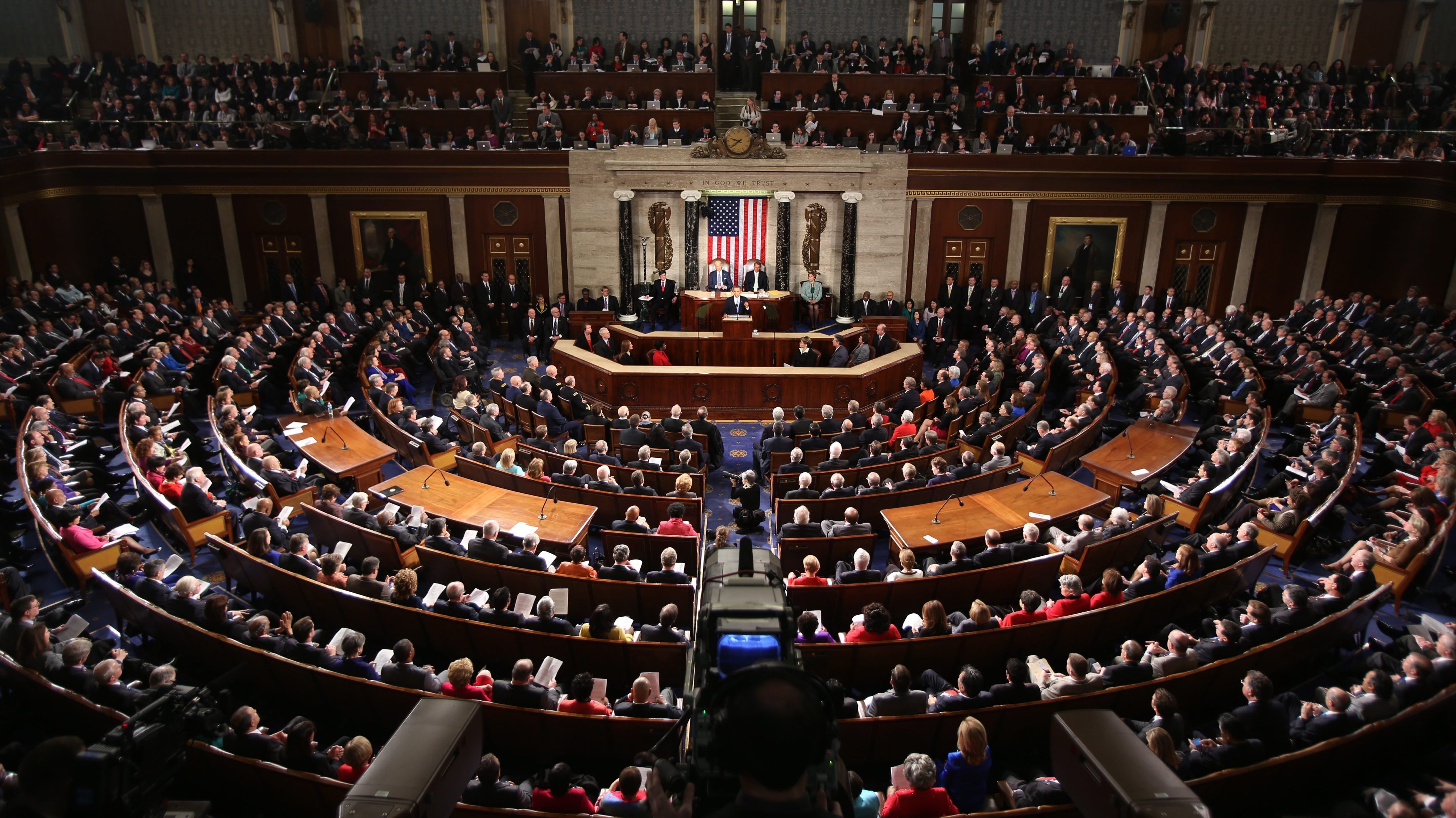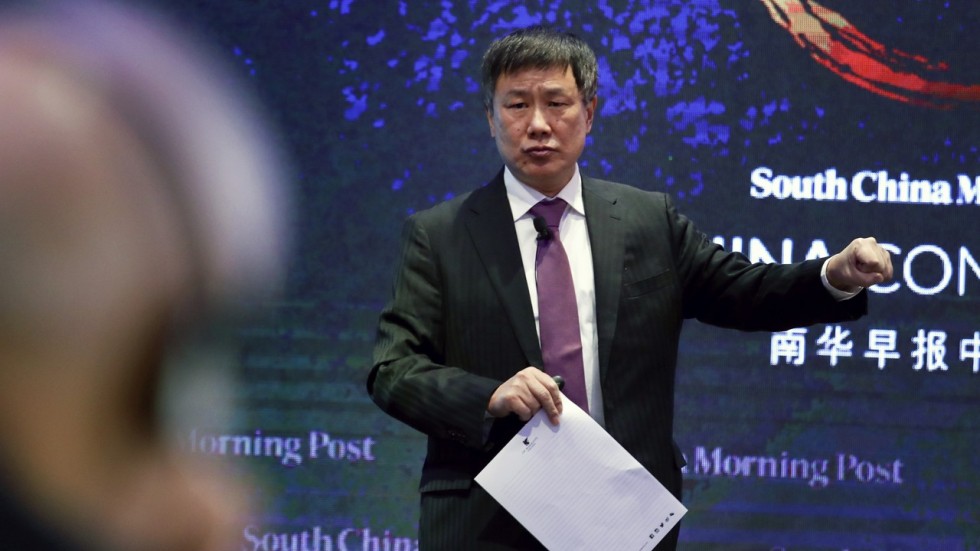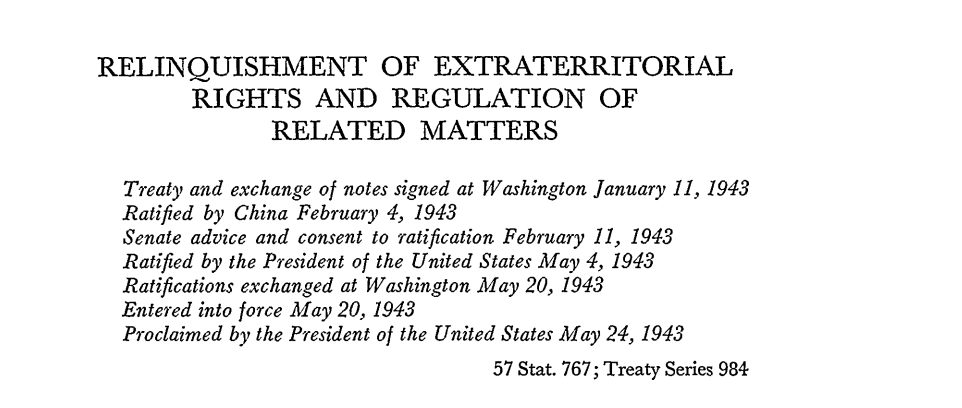
 U.S. House of Representatives Passes Taiwan Bills
U.S. House of Representatives Passes Taiwan BillsEarly this week, the U.S. House of Representatives passed two bills related to Taiwan, drawing a strong denouncement from Beijing. One of these bills, The Taiwan Travel Act, calls for an increase in visits between senior officials from Washington and Taiwan. The other bill supports Taiwan's inclusion in the World Health Organization.
Since President Trump took office, Taiwan has been an issue of contention between China and the United States. While still president-elect, Trump took a congratulatory phone call from Taiwan's leader, Tsai Ing-wen, and since his election has questioned the United States' support of the One China Policy. On Thursday, Chinese officials urged the U.S. to handle the Taiwan issue carefully. Chinese Foreign Ministry spokesperson Lu Kang said, "The passage of the two bills seriously violates the principles of the one-China policy and three Sino-U.S. joint communiques." Zhu Songling, a China-US Focus contributor, argued recently that "should the Taiwan Travel Act indeed become law, China-U.S. relations will be seriously harmed."
American companies have also been in the spotlight this week for Taiwan-related incidents. Delta Airlines faced criticism from the Chinese aviation regulator for listing Taiwan and Tibet as countries on its website. The company was quick to apologize, saying the issue was "an inadvertent error with no business or political intention." Marriott International, the hotel group, also apologized this week after it listed Tibet, Taiwan, Hong Kong and Macau as individual nations in an online survey.
Ted Galen Carpenter described China's patience with Taiwan as "fraying," arguing in an article for China-US Focus that "Americans need to consider what level of risk they are willing to take to defend Taiwan." Should these bills be signed into law, it would mark a fundamental shift in Washington's foreign policy.
 China-U.S. Trade Roundup
China-U.S. Trade RoundupFor over 30 years, China has sustained unparalleled economic growth rates, averaging 10 percent each year. However, top economists and even Chinese officials forsee a trade deficit on the horizon for China. According to Zhang Yansheng, former secretary general of an academic committee at the National Development and Reform Commission, China can no longer rely on exports to expand the economy as they are unsustainable and place a great strain on global economic relationships. As he explained, "expanding imports is a very significant part of China becoming a big global power."
China-US Focus contributor Yo Yongding argues that the decline in fixed-asset investment in China is positive and has led to the steadying of China's economy, however, he is concerned that exports will not balance out declining investment. "U.S. President Donald Trump continues to lean toward protectionism in his dealings with China. And while China probably will continue to use fiscal policy to shore up demand, the extent to which it can do so will be constrained by factors like local governments' debt burden and a consequent clampdown on so-called local-government financing vehicles."
Currently, China still has a surplus in goods and a deficit in services. Exports surged in 2017 due to booming overall global trade. However, as the government cuts tariffs on imported goods and slows the rate of exports, the trade structure will change in the next 5 to 10 years, resulting in a potential trade deficit.
Moreover, economists believe that China's economy is stabilizing after decades of rapid growth. As Yongding explains, many believe China "has at last entered a period of stable annual growth of about 6.5 percent – a level that is in line with potential."
Structural change for China's economy, should it occur, would place a strain on the China-U.S. economic relationship. In 2017, China's trade surplus with the United States widened, delivering a blow to President Trump's "America First" ideology. China's trade surplus with the United States soared 13 percent year on year to 1.87 trillion yuan (about 288 billion U.S. dollars), according to Huang Songping, spokesperson of the General Administration of Customs.
As Trump continues to look for ways to take a tougher stance on China, the results of several significant trade investigations are almost due. On Thursday, the U.S. Commerce Department sent President Trump results of its probe into whether steel imports threaten U.S. national security, the results of which have not yet been publicly released. The probe has the potential to lead to broad tariffs or import quotas on products from China. While the China-U.S. trade environment is currently a point of contention between the two countries, a long term decrease in exports from China could be welcomed by those who share President Trump's vision of reducing the bilateral trade deficit.
 Chinese and U.S. Tech Companies Compete at Consumer Electronics Show
Chinese and U.S. Tech Companies Compete at Consumer Electronics ShowChina's government aims to overtake the U.S. in artificial intelligence by 2030 and become a world leader in technology. This week, China's homegrown tech giants Tencent, Alibaba and Baidu took the competition to the U.S., showcasing the best of their innovation at the Consumer Electronics Show in Las Vegas. At what Bloomberg termed "The biggest gadget show on the planet," Chinese tech companies shared space with startups from all over the world in fields such as cloud computing, drone technology and autonomous and electric vehicles. Of the 4,500 exhibitors at the show, one third were Chinese companies. Highlighting how far China has come in the global competition for technological leadership, American exhibitors only outnumbered Chinese exhibitors by about 50 companies.
"As recently as a decade ago, few expected China's remarkable digital breakthrough," Andrew Sheng and Xiao Geng wrote in a recent article for China-US Focus. "In fact, both of the country's key Internet pioneers, Jack Ma of Alibaba and Pony Ma of Tencent, experienced early failures." At the Consumer Electronics Show this week, Alibaba displayed a range of its new cutting-edge technology, including facial-recognition payment systems and a voice assistant. Baidu, China's equivalent of Google, exhibited its self-driving platform, capable of autonomous driving even at night, and its 5G technology.
As China-US Focus contributor Lu Chen wrote, "The U.S. currently is still the dominant player in artificial intelligence, although China is demonstrating the strongest momentum. However, it remains an open question who will be calling the shots in the future." If the Consumer Electronics Show is a signal of what is to come, tech competition between China and the U.S. is likely to remain fierce.
 This Week in Chinese HistoryThis week in 1943, the United States and Great Britain relinquished their extraterritorial rights in China by signing treaties titled: Treaty for the Relinquishment of Extraterritorial Rights in China and the Regulation of Related Matters on January 11. Among other things, the treaties ended unilateral privileges in China, meaning American and British nationals would be subject to the jurisdiction of the Chinese government. The treaty signing, which took place during the Second World War, was considered a conciliatory measure by the United States and Great Britain, who hoped for China's cooperation in the war. Chiang Kai-shek, speaking in China's wartime capital of Chongqing, stated that the treaties raised China to "equal footing" with the two western powers. He said that China had become "a real friend" of Great Britain and the United States.
This Week in Chinese HistoryThis week in 1943, the United States and Great Britain relinquished their extraterritorial rights in China by signing treaties titled: Treaty for the Relinquishment of Extraterritorial Rights in China and the Regulation of Related Matters on January 11. Among other things, the treaties ended unilateral privileges in China, meaning American and British nationals would be subject to the jurisdiction of the Chinese government. The treaty signing, which took place during the Second World War, was considered a conciliatory measure by the United States and Great Britain, who hoped for China's cooperation in the war. Chiang Kai-shek, speaking in China's wartime capital of Chongqing, stated that the treaties raised China to "equal footing" with the two western powers. He said that China had become "a real friend" of Great Britain and the United States.
Prepared by China-US Focus editorial teams in Hong Kong and New York, this weekly newsletter offers you snap shots of latest trends and developments emerging from China every week, while adding a dose of historical perspective.
- 2018-01-05 U.S. Rejects Sale of Moneygram to China’s Ant Financial
- 2017-12-22 Trump’s National Security Strategy Labels China a “Revisionist Power”
- 2017-12-15 White House and Secretary of State contradict each other on North Korea talks
- 2017-12-08 China Boasts its Technology Chops at the 4th Annual World Internet Conference
- 2017-12-01 The Future of the China-US Economic Relationship
- 2017-11-17 The “Indo Pacific”: A New American Strategy for Asia?
- 2017-11-10 President Trump Revels in China’s State-Visit Red Carpet Treatment
- 2017-11-03 Will China Display Hard or Soft Power in the Era of Xi?
- 2017-10-27 All Eyes on Xi
- 2017-10-20 The 19th Party Congress Begins
- 2017-10-13 Tech Titans
- 2017-10-06 China’s Super Golden Week
- 2017-09-29 All Quiet on North Korea’s Western Front?
- 2017-09-22 Back Together and Better than Ever: Renewed Sino-Russian Relations
- 2017-09-15 China positions itself to dominate the industries of the future
- 2017-09-08 Did North Korea just test a hydrogen bomb?
- 2017-09-01 Are Forced Technology Transfers Forcing the U.S. and China to Rethink How They Do Business?
- 2017-08-25 Bannon Out: What now for the China-US relationship?
- 2017-08-18 Trump Launches “Investigation on Whether to Investigate” China’s IP Laws